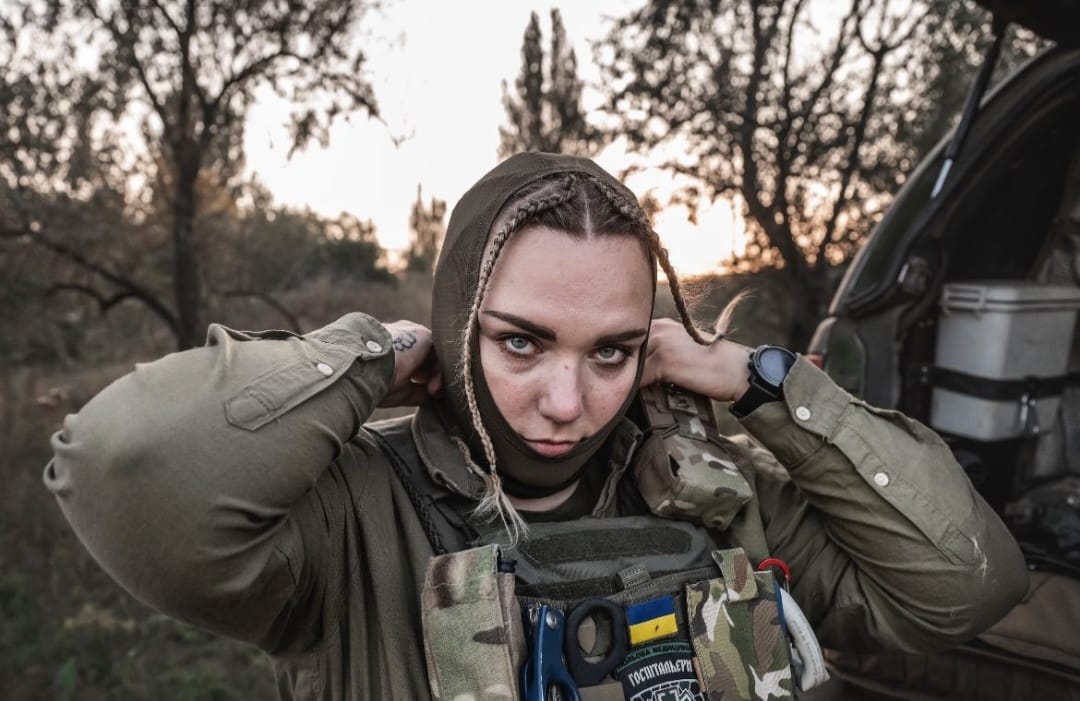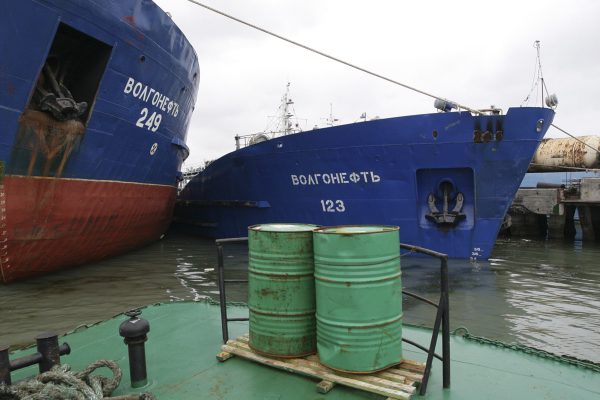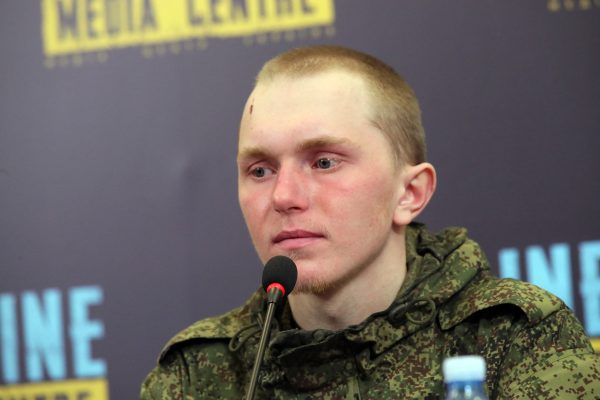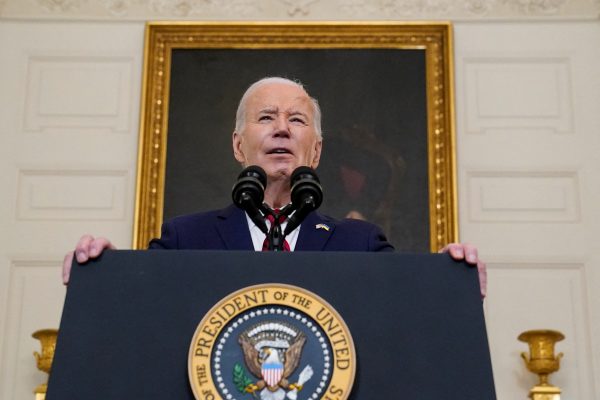Ukraine is fighting for its life. Russian occupation would mean erasure of our national language and culture, and the destruction of our national life, and removal of the country from the world map.
Women have not traditionally been asked to fight and in Ukraine they are not conscripted. But given the enormous stakes, given what it at risk, some women — including this author and many of her friends and acquaintances — want this to change.
“Everyone should take up the defense of their country,” said Iryna Tsybuh, a volunteer with The Hospitallers, which provides frontline medics. “The issue of women’s mobilization is very stigmatized and some politicians have made this a populist issue. But the army needs people and there are many positions in the armed forces where the individual’s sex does not matter.”
Like other Ukrainian women, I volunteered to serve after Russia’s invasion began in 2014 and saw action on the frontline. None of us have any illusions about the danger and the costs, but all of us want to fight. At this time of peril, when the conscription system is under intensive debate and when Ukraine is acutely short of military personnel, it is time to reconsider this old social taboo about women and war.
As things stand, only men are called to arms. Women only join if they volunteer. For example, females do not undergo the basic military training that would prepare them for operations and then place them in the military reserve for deployment if needed. And while women in certain professions, such as doctors, are on the military register along with women veterans, none is ordered to war.
No one in Ukraine is proposing the general conscription of women for frontline service. That would have severe implications for mothers with little children, or 18 year-old girls just out of high school. No one denies the often-significant physical differences between the sexes.
But opening the door to a greater use of Ukraine’s women is just a logical extension of what’s already happening. The resource of half of the population could be used much more effectively, according to the women already protecting the country. They represent the 45,000 or so females in the military at the beginning of March out of a total of about 800,000.
The nation’s conscription system is unique, and strange for those imagining that Ukrainians are called up as they reach 18. For various reasons, including a shortage of those just reaching adulthood, the military is skewed toward older people. In addition, there are numerous exemptions for men.
These include single parents, those with three or more children, university students, and men under 27 who have not previously served in the military.
The military says there aren’t enough people to fight, something worsened by the losses from two years of intensive combat. The real losses are unknown, but multiple tens of thousands are dead and wounded. The result is that the country is now chronically short of service personnel. And the Ukrainian parliament is still struggling to agree a new system — for example beginning to call up men aged 25-27 — because many ordinary people and politicians object.
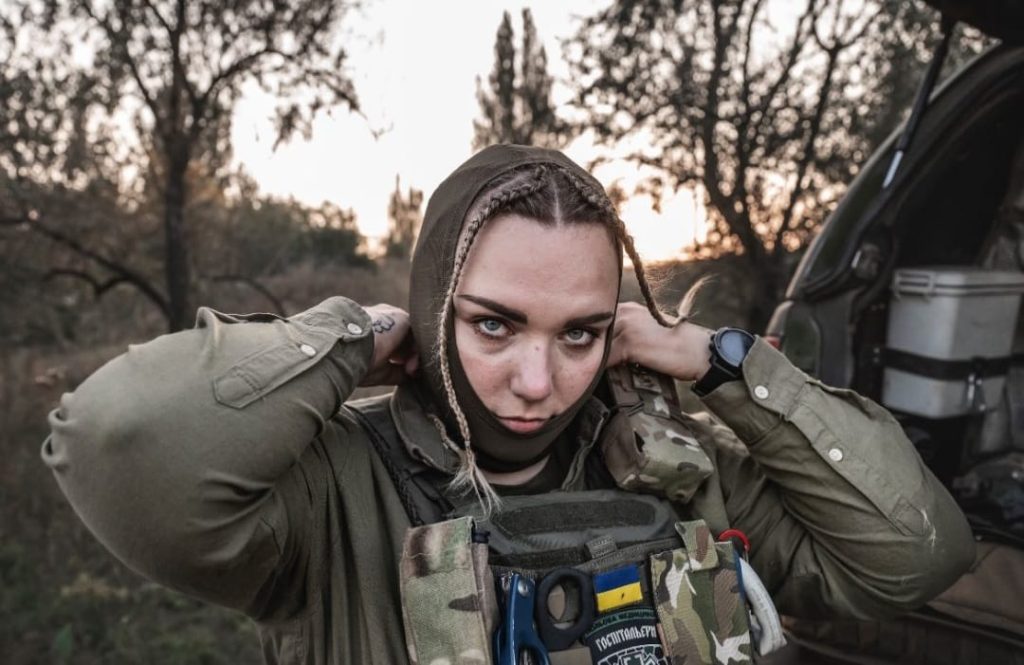
So it just seems extraordinary that women are being turned away. Tsybuh said the system is filled with prejudice and this has resulted in some women being rejected by the military system even if they volunteer. “A number of my acquaintances received rejections when they came to the pre-recruitment centers,” she said.
Maria Berlinska is often called “the mother of Ukrainian air reconnaissance”. She’s head of the Air Intelligence Support Center and runs the Victory Drones project. She’s also a combat veteran.
“Protecting the country is the constitutional duty of every citizen. And the life of a man, in my opinion, shouldn’t be worth less than the life of a woman,” she said. “When we talk about equal rights, we should also talk about equal duties. I am a supporter of healthy feminism — this means that we as a society must give opportunities to each and every one to protect the country and at the same time equally share the risks associated with this.”
Berlinska volunteered to go to war in 2014, and later on created the first and largest advocacy group for women in the security and defense sector. “And I have repeatedly seen cases where girls wanted to serve and apply themselves professionally.
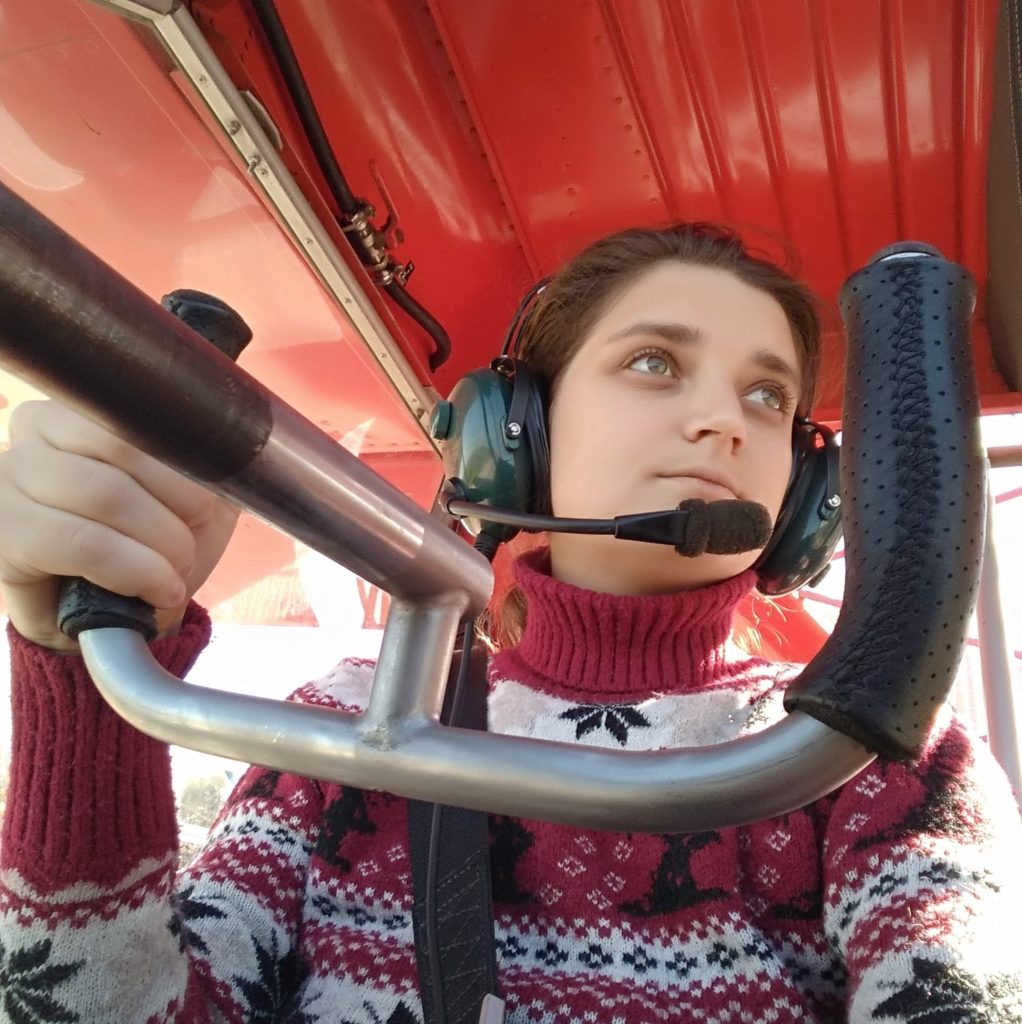
“But unfortunately, due to outdated post-Soviet stereotypes, they were not given opportunities and were told that the army is not a woman’s business and so on. At the same time, we know very well how much evidence exists to show that women defend our country with dignity and professionalism in the most diverse positions. From positions in the rear — which are also needed, like army management — to clear combat positions including snipers, gunners, scouts, even as infantrywomen”.
During 10 years of war, she says, Ukrainian women have proved capable of everything they have been asked. And many, unfortunately, have paid the price with life and limb. “The question of whether women can serve should not even be asked . . . in such a large-scale resource-intensive war, we cannot simply discard the resources of half of society,” she adds.
Yaryna Chornohuz, a Ukrainian combat medic and poet who won the 2024 Shevchenko Prize for literature, has the same opinion. “The army now lacks people; it needs to fill both combat and non-combat positions, and it should just assess the numbers of men and women needed . . . and mobilize,” she said
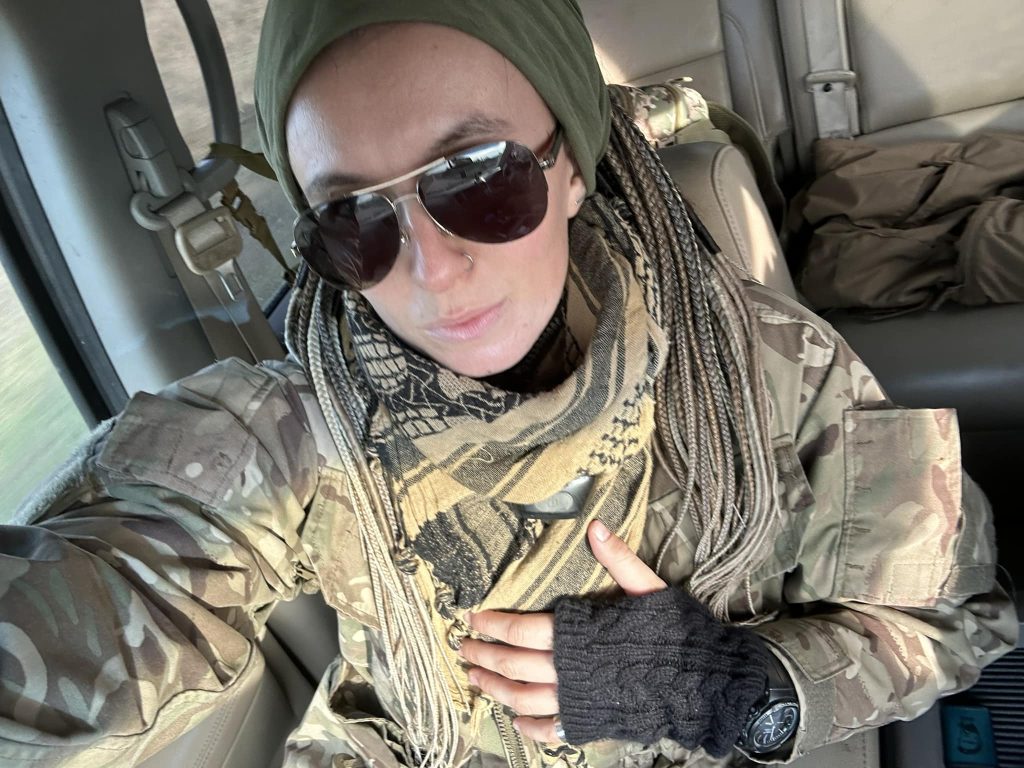
She commends the system in Israel, where both men and women must serve in the military.
“For women who choose combat positions, I believe there should be an additional course such as field skills. There they could learn what men are often taught from a young age — making firewood, for example”, Yaryna said.
She points to those who have not yet volunteered but who would answer the call if their country asked. “I know women, just as I know men, who will not go voluntarily, but say that if the state says they are needed – they will.”
Lera Burlakova is a Democracy Fellow at the Center for European Policy Analysis (CEPA.) She is a journalist and former soldier from Ukraine. She was an infantrywoman from 2014-2017 after joining the Ukrainian army following the Russian invasion of Crimea. Her war diary “Life P.S.” received the UN Women in Arts award in 2021.
Europe’s Edge is CEPA’s online journal covering critical topics on the foreign policy docket across Europe and North America. All opinions are those of the author and do not necessarily represent the position or views of the institutions they represent or the Center for European Policy Analysis.

